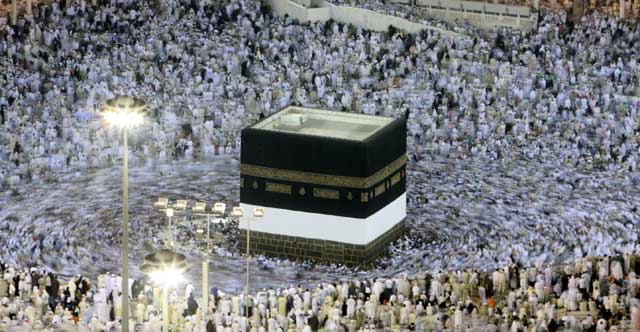The Silence Of Mohammed, By Salim Bachi, trans. Sue Rose

It is not two years since the offices of Martin Rynja were firebombed by fanatics who objected to his firm, Gibson Square, publishing Sherry Jones's The Jewel of Medina. Although three men were convicted of the attack, the novel, about the Prophet Muhammad's wife Aisha, has still not troubled the presses of this country.
The attackers had, of course, not read the book, but then neither had most of those who burned Salman Rushdie's Satanic Verses. Any less than hagiographical account of Islam's Messenger, it seems, carries the risk of violence – a risk second-guessed or even encouraged by non-Muslims with an overdeveloped care for the sensitivities of the believers.
All of which may lead one to ask whether Salim Bachi was being brave, or merely foolhardy, by not only choosing the life of Muhammad as the subject of his latest novel but by making Aisha, whose marriage to the Prophet at the age of nine has provided much grist to the mill of those who wish Islam ill, one of its four narrators. Neither, is the answer. For Bachi is an Algerian writing in French, and while they may have voted to ban the burqa across the Channel, they also have the good sense to see The Silence of Mohammed for what it is, a work of literary fiction. Indeed, it was shortlisted for one of France's highest honours, the Prix Goncourt.
Would that this superb English translation be as widely read and praised here. For too often the details of the founding of Islam are reduced to a series of dates. 610: the beginning of Muhammad's revelations. 632: Muhammad dies and Abu Bakr becomes the first caliph. 656: Muhammad's cousin and son-in-law, Ali, becomes the fourth caliph, soon after which Islam splits definitively between Sunni and Shia.
What Bachi does is to tell, in a simple, poetic and beguiling style, of Muhammad the man. He brings both the times and the historic records vividly to life. It may be that the marks of prophecy were observed on this poor Meccan orphan as a child, by the Christian hermit Buhayra, but the context of how he came to found one of the world's great religions is not so well-known.
The battles he had with family members who rejected this new monotheism, keen as they were to continue to profit from pilgrims come to worship the idols in the Kaaba. The love match of his first marriage to the older Khadija: "I'd brought him my wealth, and he'd given me his ardour and intelligence", she tells us as the book's first narrator, referring to him tenderly as Abu al-Qasim, father of Qasim, the first of their three sons, all of whom died young. The fact that he was 40 before he began receiving the revelations of the Qur'an; and what it must have felt like to have these illuminations. "May God forgive me, he thinks he'd mad," writes Khadija, "but I'm sure he isn't; such a man cannot be mad."
The complexities of the relationships between the Jews of Medina, the Christian Abyssinians who ruled Yemen, and the polytheistic Arabs, who alone appeared not to have been blessed with their own religion; and of the tensions already present in the Prophet's lifetime that later led the Shia't Ali – the party of Ali – to claim that he should have succeeded to the leadership of Muslims.
We read of a caring, passionate man, a pragmatist not a rigid ideologue, a wise judge, and a best friend to Abu Bakr, the book's second narrator and the father of Aisha, whose voice carries the final quarter. Far from being the victim of a predatory older man, as Islam's detractors try to make out, Aisha comes across as an attractively feisty young woman, devoted to her husband and so jealous of rivals that she is unafraid to question the verses that authorise him to take others to his bed. "From what I can see, your God loses no time in satisfying your every desire," she tells him. "He just laughed, which made me furious."
It is a profound, beautiful and magical book, and a reproach to those who would make a harsh and unforgiving faith of a humane religion. As Muhammad says in the closing pages: "One day, Islam will be as much a stranger as it once was... They will say false things about my life. They will portray another man whom they will name Mohammed and whom they will brandish when circumstances demand." This may be a work of fiction, but it contains truths that the firebombers have forgotten in their fanaticism. Perhaps the problem is that they never knew them in the first place.
Join our commenting forum
Join thought-provoking conversations, follow other Independent readers and see their replies
Comments
Bookmark popover
Removed from bookmarks